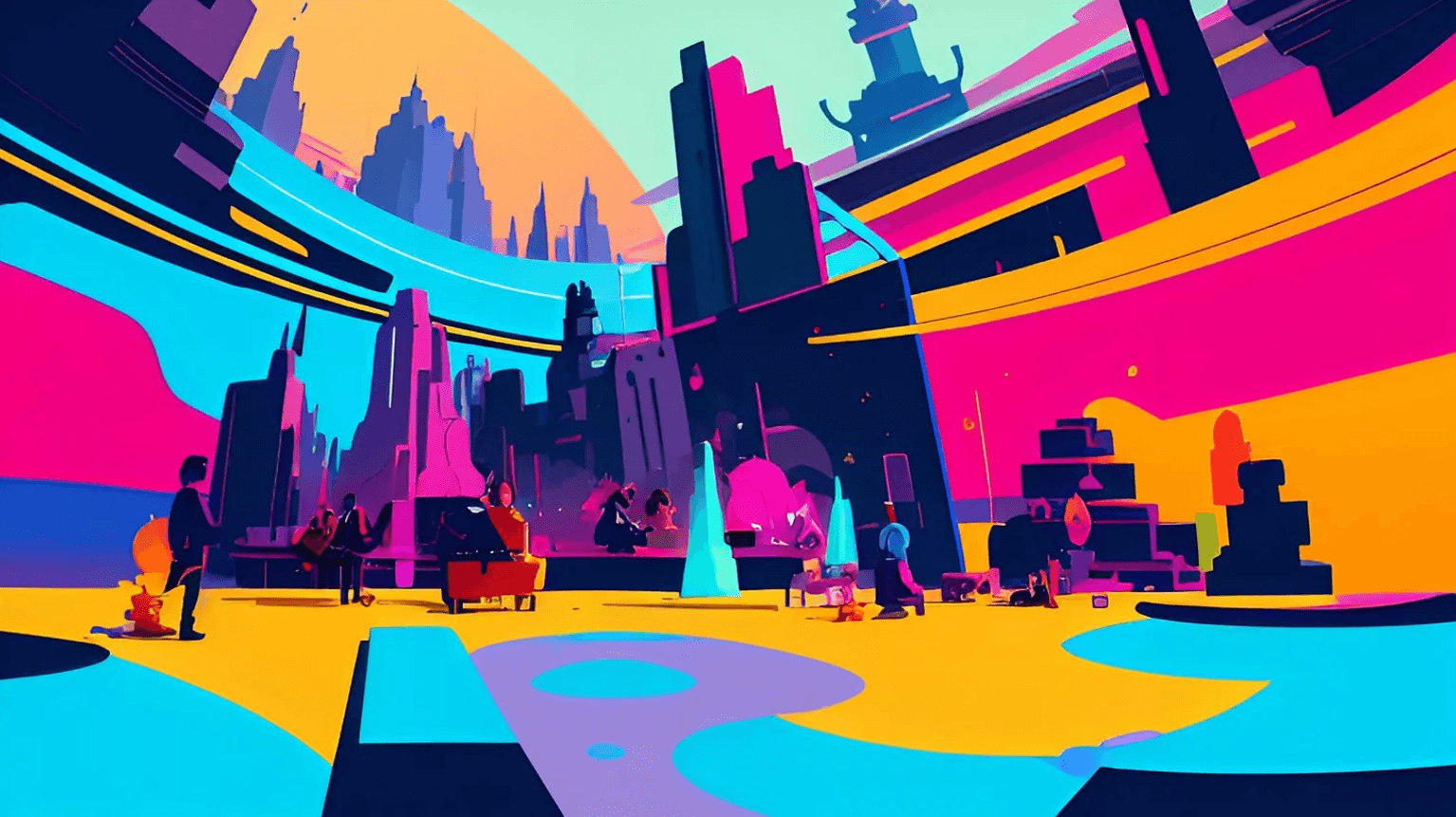The essay was originally published by Rachel Haywire on her blog
Who is going to be online in 2027? Less than 15% of the population.
Remember the early days of the internet, when it served as a secret corner for all sorts of freaks and outsiders with niche interests to unite? People from small towns could connect with like-minded individuals across the globe, overcoming geographical barriers and finding solace in a sense of community. People in big cities could start companies from their basements and get venture funding as long as they understood how the internet worked. You didn’t need a degree and you didn’t need a sponsor. You just needed to be interesting.
Wake up. The world that once welcomed outsiders and eccentrics is gone. We’ll spend the next few years reminiscing about it with nostalgia, never quite capturing the same feeling. Offline is the new online, and we’re currently at the beginning of a drastic shift in the way we socialize. By 2027, less than 15% of the population will actively participate in the digital world, unless it’s for work. What Sam Kriss says about the internet already being over is accurate. Social media will lose its relevance for the large majority of us, and I’m gonna have to, (if you can excuse my phrasing) unpack this for a moment.
The Personal is Parenthetical
Once upon a time, I had a decent following on Twitter. Unfortunately, the cursed algo began showing me the same trad and bimbo accounts over and over again, no matter who or what I blocked. When I was younger, there was a certain type of nerd who would constantly quote Monty Python. It was very annoying! It’s funny how stupid online things make you think of stupid offline things. Some of the more prominent TPOT accounts began following these types of political meme accounts, and my feed was now insufferable with their stale and regurgitated memes. Engagement farmers were rapidly multiplying. It’s so over. We’re so back. I’m so bored. This is a bad experience. Any time I tried discussing the situation, I was lectured for taking myself too seriously. I actually think that people need to take themselves more seriously, which made me a contrarian among contrarians.
So I made the decision to nuke my account, erasing my entire following in the process. Years later, I found myself questioning whether I had made a mistake, as I now found myself disconnected from the community I had the greatest intellectual connection to. My engagement dwindled faster than a roller coaster on meth. I suppose I could have brought back my FB account where I still had 5k followers, but FB was so irrelevant at this point that it would have felt like self-mutilation. I also couldn’t migrate my followers off FB no matter how hard I tried. Not to Discord, not to Telegram, not to anywhere else at all. They were prisoners who were never leaving FB, and that was that.
Deciding that it wasn’t worth it to be trapped on an irrelevant platform, I accepted my new fate as a lowbie, and began wondering if I would ever have any real online engagement again. I saw no genuine way to build a new following from scratch. My time as a main character was over, and there was nothing unique about this trajectory. My experience was part of a wider picture, and that wider picture was this: as social media federated after years of bot farms, we began losing important connections to our friends.
A New Silent Majority
I soon realized I was part of a new silent majority of people who had distanced themselves from the online world, or perhaps were never engaged with it in the first place. Our growing demographic is one that seeks solace in authentic connections, gravitating towards the allure of offline interactions. We are the lowbies, screaming into the void, humbling ourselves in the process. What happens next? We’ll be going offline to feel the connections that we once felt online, and this is exactly the protocol that will completely redefine social media. Social media in 2027 will not even resemble social media as it is today, because it will be entirely offline. The fediverse does not provide us with a nourishing community, so our only option is to build new offline communities.
The longing for past glory on mainstream platforms may tempt some of us
”ex-influencers” to return, but their diminishing relevance dissuades us. Also, nobody believes you when you tell them that you used to be an influencer. It’s like saying that you used to be a celebrity. Sure you were, kitten. So, as we contemplate our online futures on alternative platforms like Substack, the likelihood of substantial engagement for most of us appears slim. This realization has led us to an acceptance of our collective fate, and a desire to go entirely offline to create better social experiences.
The Fediverse is Boring
The elephant in the room is that the fediverse is boring. It felt good to say that. If I still smoked cigarettes I’d be lighting one up right now. The fediverse is boring! The trade-off for the freedom that the fediverse offers comes at the cost of excitement and engagement. Its decentralized nature has resulted in fragmented and disjointed communities, lacking the cohesion necessary for meaningful connections. The promise of escaping the echo chambers of centralized platforms has led to a barren environment plagued by inactivity and disinterest.
This is why I say that offline is the new online. The outcasts and freaks are now offline and the online world is dead. The offline world will become a place of wonder for the true outsiders and eccentrics to gather. Social media is going fully offline and it’s going to be wild. Nobody worth talking to is going to stay online for much longer unless it’s through backchannels. Venkatesh Rao calls the reversion to backchannel communication the cozyweb. I crave more excitement than a thousand Discords, is the thing. The online world just isn’t a place for people like you and me to socialize anymore, and that’s fine.
Let’s Try This Again
We have no choice but to take social media offline if we wish to engage in healthy social lives. Social media, online, will continue to lose relevance for us. Social media, offline, will gain mass appeal. The future of social media is offline and full of immersive art exhibits and live AR experiences. Most of it will take place in speakeasies and pop-ups. This return to private life will be spiritually rewarding for so many of us who were once slaves to the algo.
So here I am, posting to the only platform I haven’t fully given up on, with less engagement than I’ve had in decades. Perhaps my online relationships will become less superficial now that I have so few of them, but eventually they will all go offline. I am becoming very offline. There is no dopamine rush from getting a few likes. I get a bigger dopamine rush from going for a jog. There is no joy in the algorithms feeding us the same content over and over again. There is no joy in seeing trads and bimbos with no moral compass compete for fame.
This massive shift that forces us offline will give us the freedom to recreate and redesign IRL so it is more friendly to people like us. We can make real life fun again. During the 90s, there weren’t so many isolated people who needed the internet to connect, because bands like Nirvana and Nine Inch Nails gave what would have been “the online generation” a voice. We had Radiohead and TOOL to speak for us, the freaks, isolated in our little corners of the world. In essence, we have the chance to reproduce this journey with a host of new technologies at our fingertips. We had clubs and concerts and conferences. We are going to have them again, and we will be able to use AR and AI to enhance them. Rejoice!
As we embrace this offline renaissance, we have an opportunity to redefine the real world and create an era where personal connections thrive, leaving behind the shallow realm of repetitive content and fragmented communities. It is up to us, the silent majority, to reimagine the offline world for a new generation that is outside of both centralized social media and the fediverse. It isn’t Twitter and it isn’t Mastadon. It’s IRL. Offline is the new online.

